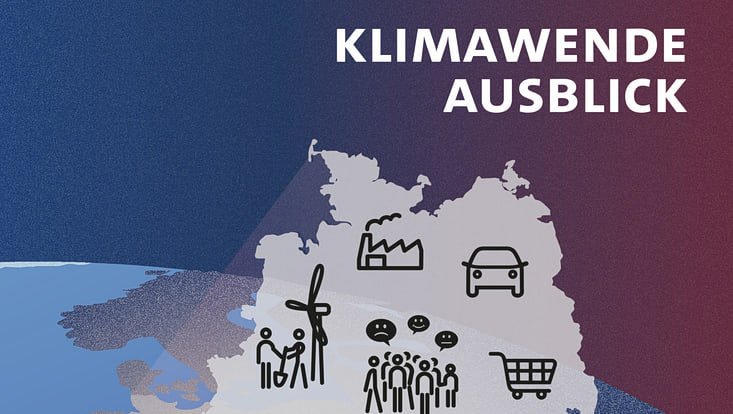and Society (CLICCS)
Germans consider climate change a substantial threat
7 December 2023, by Stephanie Janssen

Photo: Josep Martinez
More and more Germans consider climate change to be a threat. In a representative study supported by CLICCS, 77 percent of those surveyed rated climate change as a “substantial” or “very substantial” threat to Germany; in 2014, the number was 63 percent.
The nationwide telephone survey, which was conducted in the fall of 2022 under the leadership of Prof. Beate Ratter, involved more than 3,000 participants. According to the results, an impressive 81 percent now feel it is possible they will be personally affected by the impacts of climate change in their region; in 2014, the number was 69 percent.
This aspect is relevant for the required decarbonization of society. Citizens’ individual climate behavior is a critical factor in whether – and if so, to what extent – they consider climate change to be a threat. Those who believe it could affect them personally are more likely to support climate protection measures or take steps to adapt.
“Climate change adaptation measures can reduce the risk of damage, but can also spark resistance,” says Ratter, a geographer. “They are more likely to be supported when citizens understand the need for them. And part of that means they consider the threat to be something that could affect them personally; only then are they willing to take personal precautions.” The study confirms that citizens’ attitudes on their individual risk are to a considerable extent regionally influenced and depend on how visible climate change impacts are where they live, as well as their own recent experiences.
In 2014, storms (28%) and flooding (23%) were cited as the natural disasters with the greatest potential consequences for the respondents’ home region. After several years of extremely dry conditions, blazing hot summers and forest fires, we now see a different picture: in 2022, droughts (27%) and heat waves (19%) were the new “top two”.
“Those who have experienced an extreme event in their home region don’t feel as secure and tend to see climate change as a more pressing threat,” says coordinator Ratter. The study confirms this, e.g. for the postal code region “5,” which is home to the Ahrweiler district – where, in July 2021, the flooding in the Ahr Valley did tremendous damage and cost more than 130 lives. This had a direct effect on risk perceptions: unlike the rest of the country, in 2022 those surveyed there rated flooding (21%) as the greatest threat in their region.
Which age group feels most at risk? 79 percent of young people (14- to 29-year olds) and those over the age of 60 consider climate change to be a “substantial” or “very substantial” threat. At 73 percent, the number is lowest among 30- to 44-year-olds. These generally high risk assessments can be used to determine which future social developments are plausible – the central research question CLICCS is pursuing answers to.
Study results available for download:
Ratter B, Runge A (2022):Klimawandelwahrnehmung und Extremwetterereignisse in Deutschland, 2022 (German version)
CLICCS Quarterly
The article was published in CLICCS Quarterly magazine, the research news from the Cluster of Excellence every three month.
More on the topic: More Germans now consider climate change to be a threat


